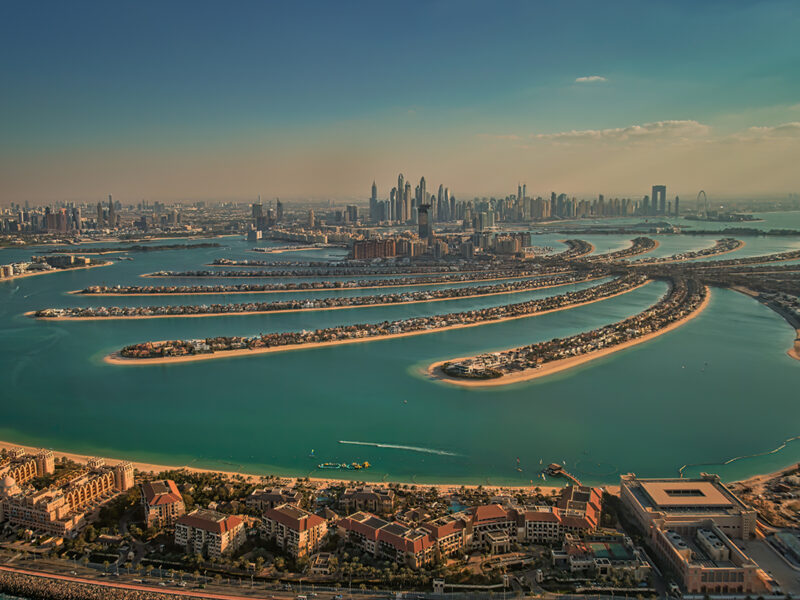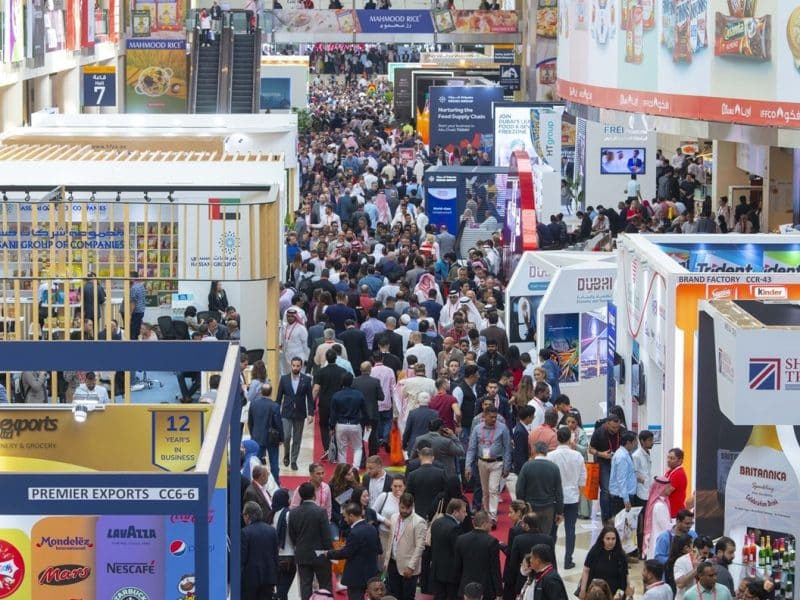They are: Neelesh Bhatnagar, managing director at Emax (NB); Hicham Hage, general manager at Lebanese retailer Domtech (HH), Leon Beuyukian, CEO at EON (LB); Gaurav Brahmwar, managing director at Dubai-based Computer Depot (GB); Dikran Tchablakian, vice chairman at CompuMe and senior vice president at Saudi mobile retailer i2 Group (DT); and Mohamad Kabbani, general manager at CMAX in Syria (MK).
How would you assess the current state of the Middle East IT retail market?
NB:
The present scenario in the Middle East IT retail market is that it’s growing rapidly so we’re not in any hurry to catch up with our competitors. I think there is scope for everyone to grow and be profitable. We’re all developing a culture amongst consumers of shopping in a specialist store, rather than going to souks or hypermarkets. Collectively I believe we are raising standards and creating an environment which is professional, technical and specialised.
DT:
What customers are looking for today is design and functionality. The consumer has matured and they are asking for more from the vendor. We, the retailers, have to display all this and bring it to the standards of what the customer is expecting. The health of this industry is very strong and it will grow stronger. Just look around. Eight years ago we were the only store. Today there are hundreds of stores with different concepts throughout the Middle East.
HH:
In Lebanon – at this stage – it’s really bad. Looking at the situation, things are really not very stable. This is basically to do with the political situation in Lebanon. As far as the industry’s running, it’s okay, but the problem is that not a lot of sales have been happening. Not many companies have been opening or reopening in Lebanon recently, so things aren’t really looking that good for the IT retail market.
Which products or services that you retail in your store provide you with the biggest profit margin?
NB:
The biggest opportunity to make profit is at the lower-end of brand positioning – basically the Chinese brands which are not already available in the market, and that’s what we plan to introduce in the next few months. Top of the hierarchy are Japanese brands such as Sony and Panasonic, then there are Korean brands competing with the Japanese. The market is yet to see Chinese brands, which will compete with Japanese and Korean brands. This is something that’s happening across the world, but not in the Middle East yet.
MK:
The accessories bring us the biggest margin. Notebooks also make good margins nowadays, but the accessories are still top. Any accessories – not peripherals – for notebooks, and maybe some accessories for desktops, offer the most margin. The consumer who buys a notebook is usually willing to pay much more for accessories than a consumer who buys a regular desktop so we always look to find better quality accessories for notebooks.
Talk us through the operational challenges of being an IT retailer. What are the main financial costs that you incur and what can you do to keep it to a minimum?
LB:
The biggest financial cost is the cost of the elements; the products. Retailers in the Middle East cannot work with margins less than 15%, and that’s not where we are, we’re at much less than 10%. Look at laptops – 7% to 8% – and that’s what drives the business. If you sell a laptop, you need to sell the accessories with it, but you can’t sell accessories unless you’re selling the laptop. When the hardware is driving the business, and if you’re only getting 5% to 6% margins on it, that doesn’t really make sense.
MK:
Buying in quantities usually helps us a lot. It is quite difficult for our country because the quantity we buy would be a small quantity for other countries. The best thing is just to be able to buy large quantities so that we can reduce our cost. Another thing is the advertisements – we usually have a big budget left for the annual advertisements and we try to reduce this over the year. Here, in Syria, I reduce my advertising budget by having the suppliers pitch in with me when I want to make some advertisements.
DT:
Rental! At the beginning when we started this venture we thought that the standalone big box model would work in this part of the world and that is why we opened the first one in Garhoud, UAE. The rent was important even then because we needed to have a big space and at that time the malls were not yet ready. Today, the mall industry is for the big players and you cannot avoid being in the market. Frankly, when we took the Mall of the Emirates store we had a completely different outlook. There are a lot of tourists coming, which did not happen in this market before. Because of this transformation we decided we had to be in the malls, but being here does mean a high cost.
What challenges do you face in trying to build a skilled and motivated shopfloor sales force?
GB:
Before, it wasn’t so difficult to get good staff, but it is now. Salaries are rising as the cost of living is going up and so there are fewer people you can hire for a budgeted amount. Also, salaries in home countries are rising, you don’t get talented individuals coming here anymore because the salaries in India aren’t bad and everyone knows that the cost of living here is so high. They know that if they come here there won’t be any opportunity to save money.
NB:
Our staff have to be qualified and knowledgeable – so before an Emax employee first steps foot in the store, they undergo Emax training, technical training from the vendor and the general corporate training which addresses customer service, behaviour and etiquette. But it’s not perfect – there are still gaps and ultimately no matter how much you try to train a person in a classroom, they receive the best training on the shopfloor.
LB:
First and foremost, people who are in the IT sector have very little knowledge of how to talk to customers. Communication is commonly a problem. When the customer comes to a specialised IT retailer he comes for expertise and if you have the expertise and don’t communicate it properly you lose out. They say presentation is everything – you might not know much, but if you communicate properly, you can convince the customer.
How heavily do you invest in marketing with vendors?
NB:
Marketing is very essential for Emax, as the Sharjah big box outlet is still in the initial launch phase. At the end of the day, we want to ensure that Emax is always the first port of call for a laptop – it should automatically spark with the customer. We have done well in the last six to eight months we’ve been around. Some of our competitors have been around for ages, but we’ve already started to make a name for ourselves.
LB:
We have been investing heavily, particularly with the fact that we’re trying to deliver the customer experience that you can’t find today. Today, a concept can’t be copied easily, you can copy layout, colours, furniture – everybody’s offering the same products, brands, quality service and the same competitive prices – but what you can’t copy is the delivery of the customer experience that makes a customer really satisfied.
GB:
Vendors come over for an afternoon once in a while and then they have their own seminars and the boys go there and spend a couple of hours with them. We are also members of the Dubai Service Excellence Scheme. They also have their own training seminars and they have guest speakers to give seminars on service.
What more could vendors do to make your retail outlet more profitable?
LB:
Vendors must be aware that the Middle East is expanding, particularly in Dubai where you have very big early adopters. Therefore they have to show their commitment to the region by ensuring they get their digital products into the region. If you look at Acer, HP or Dell, they have already announced digital products in other parts of the world, but they have not yet introduced them to the Middle East.
HH:
So far they’ve been very good. We’ve been receiving excellent support regarding the products that we’ve been purchasing off them and selling to consumers. We’ve been getting excellent hardware support and education about products, and channel events have been set up. We really have no complaints for vendors at this stage.
GB:
I think they should carry out more branding – increase awareness of the product and product line and advertise more. Also, they must have a very clear warranty policy. Normally, customers come into the store, buy the product, go home and assume that the warranty is available here. It’s quite common, and of course you’d assume that, but often it’s not the case.
DT:
Nowadays, they are listening to all the ideas that we come up with, but they still don’t understand the full package that we have to provide to the customer; all the other services that we give which they don’t take into consideration such as one-year free accidental damage and credit card charges. They are not yet involved in this dynamic – they are involved in standardising the market, but not understanding the uniqueness of each shop.
What threats pose the biggest challenges to the IT retail market?
NB:
The biggest threat is inventory management because new models are launched in quick succession, and prices are dropping every day, sometimes from morning to evening! If the retailer is not on top of the situation, that could ruin any amount of hard work done. Also theft – if one mobile phone is pilfered, that will wipe out the profit you stand to gain on 20 mobile phones.
LB:
The biggest threat to profitability is big box retailers. They don’t understand the dynamics of the region, nor the dynamics of the industry, yet they go in and invest heavily assuming they will make a killing. There is no magic formula to this business.
What plans do you have to expand your business this year?
HH:
This time last year things were looking very promising, but with all the turmoil things have been fluctuating up and down so we can’t really predict what things will be like in the future. Everything is linked to the political situation in Lebanon – at this stage we’re not making plans. We did have hopes and plans when things were looking more promising, but for the moment we’ll just have to wait and see.
GB:
We’re opening a new outlet store in the Dubai Mall. The new Computer Depot outlet will be open in the first week of August and it will be primarily IT products that we provide, and also digital IT convergence products.
NB:
At this point in time, we have two stores signed up in Bahrain and six stores signed up in Saudi Arabia and there are others we are in talks about at the moment. The eight stores should all be open by November this year. Qatar is experiencing phenomenal growth and there’s a lot of money in Kuwait, so we’re targeting those markets next. We want to emerge as a regional retailer – this will give us strength in the market. Also, they will all be destination outlets – we won’t be compromising our big box concept.
LB:
We’ll be in Abu Dhabi hopefully by the end of June, and by November we should be in Festival City. In 2008 we have Dubai mall coming up and we’re also opening a store at Bahrain City Centre.
DT:
We will be opening 100 to 150 stores inside three years, and this is not only in the UAE, but in the regions where we are. We are in 23 countries today. We are working on different models and concepts because i2 is originally a mobile company. They have their own shops and these shops will continue to serve the mobile market. We will start to upgrade some shops and do modifications because of their position and sales, and we will call them i2 Digital. These are the 100 square metre shops and then we have the big box format coming next year. The third new concept is the i2 Digital store we have opened in Dubai. We will also open a new concept store in Abu Dhabi.
How must technology retailers evolve their business to safeguard their future?
MK:
In terms of our business, we are trying to focus on specific brands so the consumer knows that if he wants to find a specific product he can just come to CMAX to buy it. I have spoken to other retailers in my market and they have the totally opposite idea. They are aiming at developing a variety of products so that the consumer can come to their shop and find everything and anything. It is just a different way of shifting the business.
DT:
We have been reinventing ourselves from the beginning, creating new concepts and pioneering them. We travel, we meet people, and we exchange information, which is all part of finding ways to recreate ourselves. We cannot stay stagnant. When you build a store, you never keep it the same – the whole time we are changing it and improving it.
Online retail in the Middle East. Opportunity or threat?
MK:
It is not an opportunity and it is not a threat. I have tried online business and it is not successful here in Syria because consumers like to feel the product. The consumer sector is not developed enough for online purchases.
DT:
Maybe it is a threat on the software business because of the downloads and ordering software online. But look at the fact that Apple has opened shops. You can sell an iPod very easily on the net, but people want the experience of seeing the colours and holding it in their hands. So no, I don’t think there are threats on the hardware side, but on the software side, yes.








